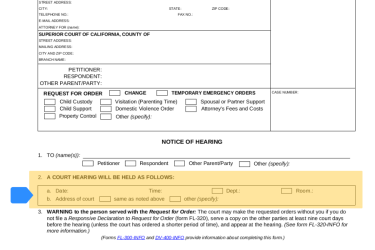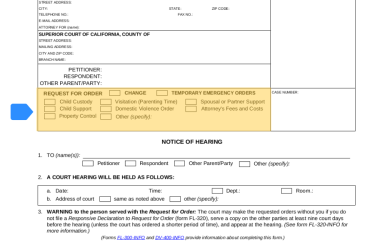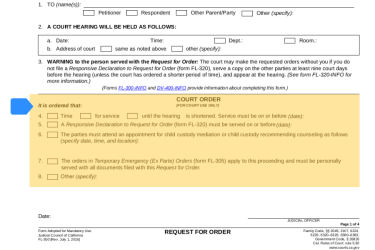What do these papers mean?
Request for Orders (FL-300)
If you received a Request for Orders (form FL-300), it means the other party in your family law case is asking the court to make a decision. The court set a date to hear from both sides (a "hearing") before it makes a decision.

Hearing date and time
The date, time, and place is on the first page.
What if I need more time or can't attend the hearing?
What the other party is asking the court to decide
The topic of the request is checked on the first page. What the person wants the Court to decide and why are on pages 2 – 4 and any attachments.
If "Change" is checked it means that there's already an order about this issue and the other person wants that changed.
If “Temporary emergency orders” is checked it means the other person asked the court to decide something urgent before the hearing. If the Court agreed, item 7 at the bottom of page 1 will be checked and the orders will be attached. These orders are temporary. They only last until the hearing. You must follow these orders.

Orders made before the hearing
Sometimes the court makes orders about what one or both sides must do before the hearing. For example, if the hearing is about child custody and visitation, the court may order you to attend mediation. You must follow any orders listed.
What to do next
No matter what you decide to do, right now you need to:
- Follow any orders in or attached to the Request for Order
- Go to mediation, if ordered, in item 6 on the first page
You have options to respond. If you do not respond, the Court will decide without your input.
There's generally no cost to respond. If this is the first time you are filing papers in the case, there may be a fee. If you can’t afford the fee, you can ask for a fee waiver.

